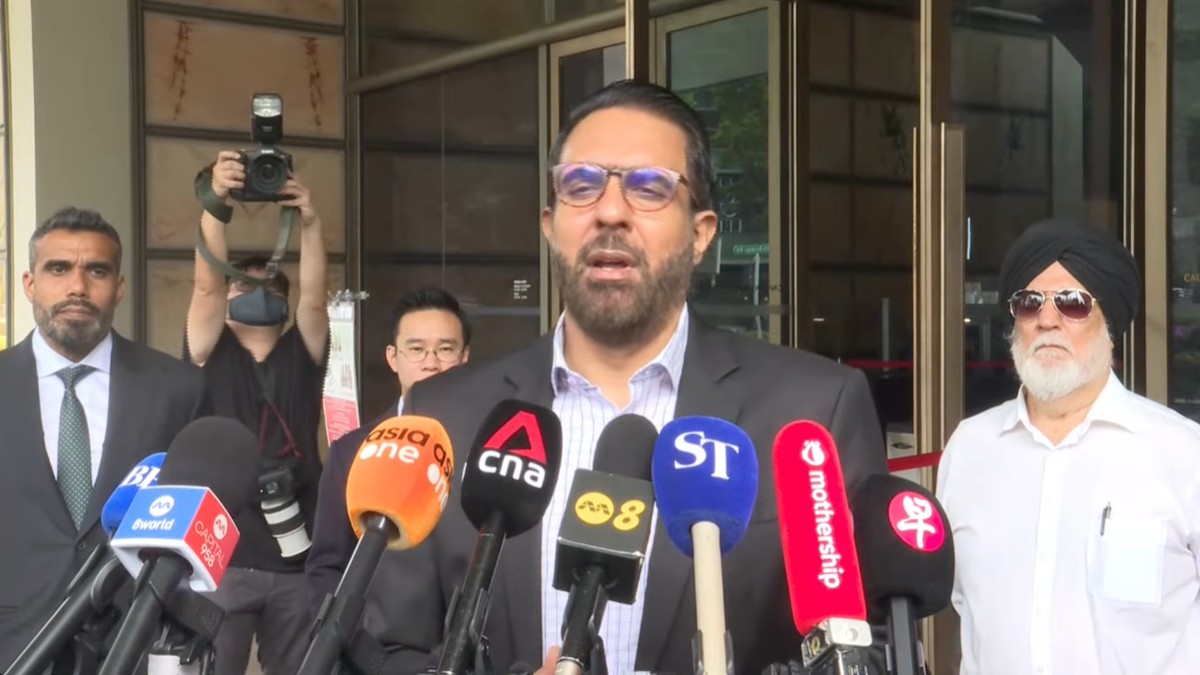Court of Appeal dismisses Prosecution’s appeal for additional jail term in lieu of caning
The Singapore Court of Appeal has dismissed the Prosecution’s appeal to impose an additional six-month imprisonment term in lieu of caning for Mark Kalaivanan, ruling that the law does not permit such an addition when the offender is already under the maximum sentence of preventive detention.

- The Court of Appeal ruled that preventive detention (PD) precludes additional imprisonment in place of caning.
- The statutory maximum of 20 years for PD cannot be exceeded, even through substitution for caning.
- The court found no necessity or effectiveness in imposing the Prosecution’s requested six-month sentence.
SINGAPORE: The Court of Appeal has dismissed an appeal by the Prosecution to impose a six-month jail term on convicted offender Mark Kalaivanan s/o Tamilarasan in place of caning, which had been remitted due to his medical unfitness.
The ruling clarifies that no additional term of imprisonment can be imposed when an offender is already sentenced to preventive detention (PD), especially when the statutory maximum of 20 years has been ordered.
Delivering the court’s decision on 13 October 2025, Justice Tay Yong Kwang, with Justices Steven Chong and Debbie Ong concurring, reaffirmed the High Court's discretion to remit caning under Section 332 of the Criminal Procedure Code (CPC). The Prosecution had sought a substitution of six months’ imprisonment for the 12 strokes of the cane, citing deterrence and retribution as justifications.
Background of the case
Mark Kalaivanan was convicted on four charges, including aggravated sexual assault by penetration, trespass with intent to assault, outrage of modesty, and impersonating a police officer. The offences occurred on 15 July 2017, when he entered an unlocked flat, falsely claimed to be a police officer, and assaulted a woman.
He was initially sentenced in August 2023 to 18 years’ PD and 12 strokes of the cane. The Court of Appeal later increased his PD to the maximum 20 years and backdated it to his arrest date, 15 July 2017, effectively reducing his incarceration to under 13 years when accounting for time already served.
Subsequently, it emerged that Kalaivanan had been declared medically unfit for caning due to multiple health issues, including cervical spondylosis. Under Section 332 of the CPC, the sentencing judge was required to decide whether to remit the caning or impose imprisonment in its place. The High Court chose to remit the caning fully.
The Prosecution’s arguments
In its appeal, the Prosecution argued that substituting imprisonment was essential to preserve the punitive and deterrent value of the original sentence. They cited Kalaivanan’s repeat offences, previous conviction for aggravated rape, short lapse before reoffending after release, and high risk of sexual reoffending.
The Prosecution referred to the Court of Appeal’s 2021 decision in Isham bin Kayubi v Public Prosecutor, where a 12-month imprisonment term replaced caning for a medically unfit offender already sentenced to 32 years’ jail.
The Court’s decision
The Court held that under Section 304(2) of the CPC, PD is imposed “in lieu of any sentence of imprisonment,” including imprisonment in place of caning. Consequently, additional imprisonment cannot be layered onto a PD sentence.
It noted that PD and imprisonment are fundamentally distinct in purpose, with PD serving primarily to protect the public from habitual and dangerous offenders. Given this distinction, any imprisonment—whether regular or substitutive—must be subsumed under the single PD term capped at 20 years.
The judges emphasised that allowing supplementary imprisonment would undermine statutory safeguards and potentially result in detention periods exceeding legal limits. They also highlighted procedural rules that require concurrent sentencing for offences committed during or after PD.
No necessity or effectiveness in additional term
Even if additional imprisonment were permissible under the law, the Court found that it would be neither necessary nor effective in this case. It reasoned that the deterrent and retributive purposes were adequately served by the existing 20-year PD sentence.
The Court noted that Kalaivanan’s exemption from caning was medically driven, not a result of judicial leniency, and he could not have anticipated this at the time of the offence. The marginal value of six more months’ imprisonment, in this context, was found to be low.
In response to the Prosecution's reliance on Isham bin Kayubi, the Court distinguished that case based on its “sordid” facts and multiple young victims, whereas Kalaivanan’s offences, though serious, involved a single adult victim and were already met with the most severe form of custodial sentencing available.








0 Comments